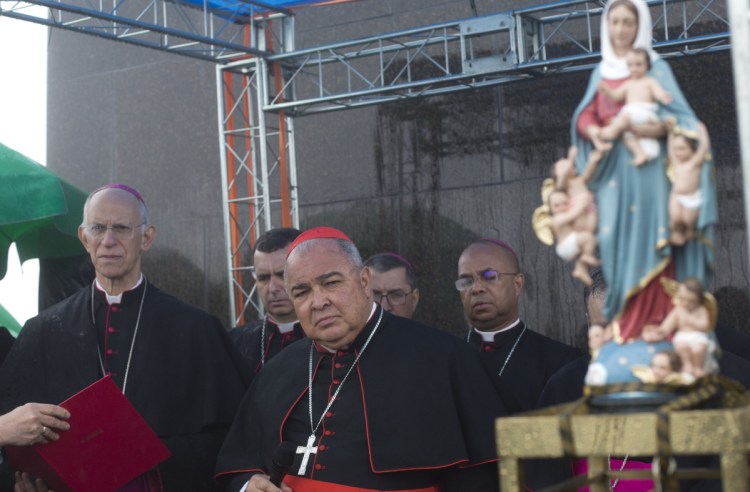RIO DE JANEIRO — Supporters and opponents of legalizing abortion testified Friday in front of Brazil’s top court, which is holding two days of extraordinary hearings on an issue increasingly debated in South America.
The hearings at the Supreme Federal Tribunal come as a handful of countries in South America have moved toward decriminalizing the procedure in the first trimester of pregnancy. In Brazil, a deeply conservative nation that is home to the world’s largest population of Catholics and fast-growing evangelical faiths, abortion is illegal and comes with a punishment of up to three years in prison. There are three exceptions: if a woman is raped, pregnancy puts her life in danger, or the fetus is brain-dead.
The question before the court is whether to allow elective abortions during the first 12 weeks of pregnancy.
Some emphasized a fetus’ right to life, while others said that inequality makes the current ban particularly onerous on poor black women.
Debora Diniz, an anthropologist and law professor at the University of Brasilia, told the story of a black maid who, already struggling to raise three children, had an illegal abortion and died. Citing a 2016 survey undertaken by the university, Diniz noted that 1 in 5 Brazilian women under 40 years old have had an illegal abortion.
“The crime is how women are having abortions,” said Diniz, who earlier in the week said she had received threats because of her vocal position on the topic.
Hermes Rodrigues Nery, from the National Association of Pro-Life and Pro-Family, argued that the right to life begins at conception and that concerned groups should focus on attacking the root causes of poverty, not helping the poor get abortions.
“The culture of death impedes our development as a nation, development that only comes from human capital,” he said.
More than 40 experts from all sides of the debate were expected to testify on Friday and Monday but there was no timeline on when the court could make a decision.
The thorny issue made national headlines last year when a Brazilian woman, Rebecca Mendes, wanted to terminate an unwanted pregnancy. Her petition was denied by the top court, and she eventually had her abortion in Colombia.
The discussions in Brazil, Latin America’s largest nation, come as neighboring Argentina is on the cusp of allowing elective abortions in the first 14 weeks of pregnancy. A vote in the Senate is expected next week after the measure narrowly passed the lower chamber of Congress in June.
In Chile, the Constitutional Court last year upheld legislation ending the Andean nation’s absolute ban on abortions, permitting the procedure when a woman’s life is in danger, when a fetus is not viable and in cases of rape.
In Brazil, numerous proposals to loosen abortion laws in recent years have failed to gain traction in Congress, where the so-called “evangelical bloc” exerts strong influence over social issues. Last year, a congressional committee approved a bill that would ban abortion in all circumstances, though it has yet to be voted on the floor of either chamber.
Regardless of the strict law, an estimated 500,000 illegal abortions are performed each year in Brazil, according to the 2016 survey by the University of Brasilia.
Those procedures come with a high price for the state: A study by newspaper Folha de S. Paulo, based on data from the Ministry of Health, found that over the last decade it cost nearly $130 million to treat women who had complications from illegal procedures.
While the topic is often at the center of debate, it’s been all but a non-issue in the heated presidential campaigns ahead of general elections in October. In one form or another, all the leading candidates oppose abortion.
Send questions/comments to the editors.



Success. Please wait for the page to reload. If the page does not reload within 5 seconds, please refresh the page.
Enter your email and password to access comments.
Hi, to comment on stories you must . This profile is in addition to your subscription and website login.
Already have a commenting profile? .
Invalid username/password.
Please check your email to confirm and complete your registration.
Only subscribers are eligible to post comments. Please subscribe or login first for digital access. Here’s why.
Use the form below to reset your password. When you've submitted your account email, we will send an email with a reset code.